Job insecurity undermines democracy
Workers on non-permanent contracts and workers with no formal contract are less satisfied with the functioning of democracy in their country, as are workers experiencing job insecurity.

Workers on non-permanent contracts and workers with no formal contract are less satisfied with the functioning of democracy in their country, as are workers experiencing job insecurity.

The EU’s financial commitment to social issues - with government spending on social services such as social protection, education and health claiming a significant 35% of GDP in 2020 - underpinned its resilience to the economic shock of the COVID-19 pandemic.
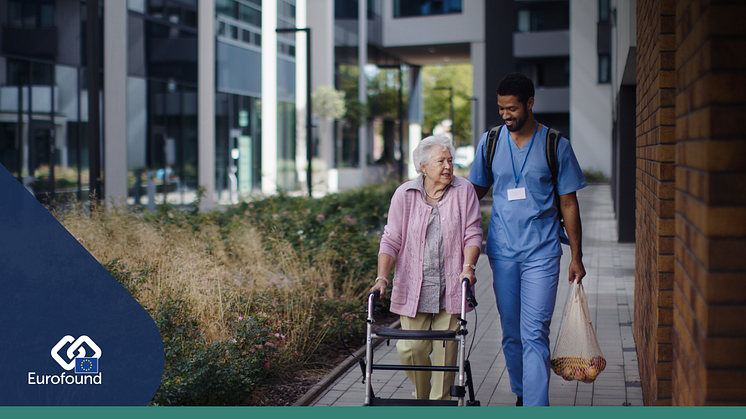
A new joint report by ECDC and Eurofound concludes that adult work-life balance was significantly affected by measures such as stay-at-home orders and recommendations, closures of day-care, primary and secondary schools and national teleworking recommendations implemented in response to the COVID-19 pandemic.
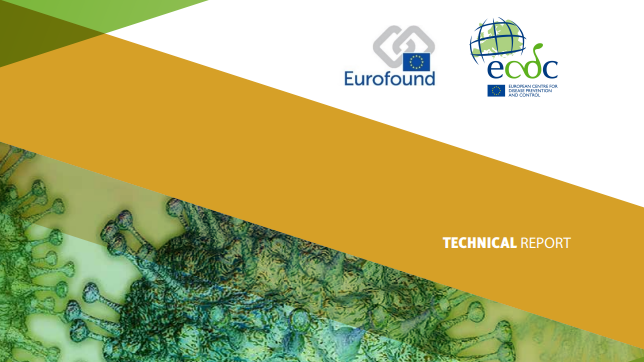
While some environmental indicators have improved across the EU, there are large inequalities between people at different income levels in Europe, with low-income populations drastically worse off in terms of the quality of their neighbourhood and housing.
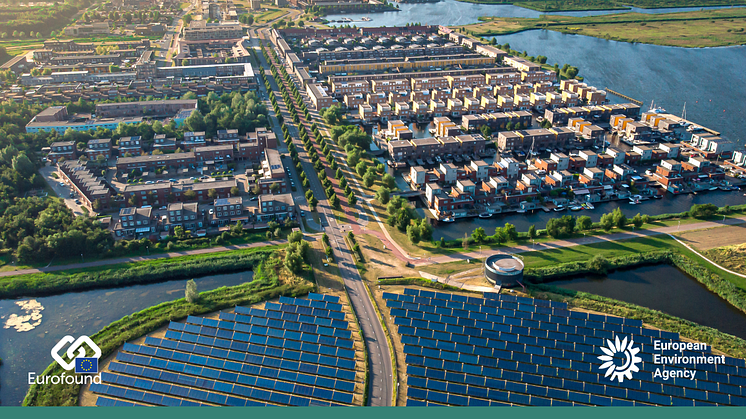
The move to a climate-neutral economy doesn't only represent risks and costs, but it has the potential to create exciting new opportunities with net employment gains, new business sectors and a healthier environment. Eurofound and the EEA have brought together EU level and regional experts and stakeholders to explore what these socioeconomic impacts could be and how policy could respond.

Focusing on prevention, and the strategic application of social support at the right time, is an important aspect of reducing evictions and ensuring citizens have affordable housing options in Europe.
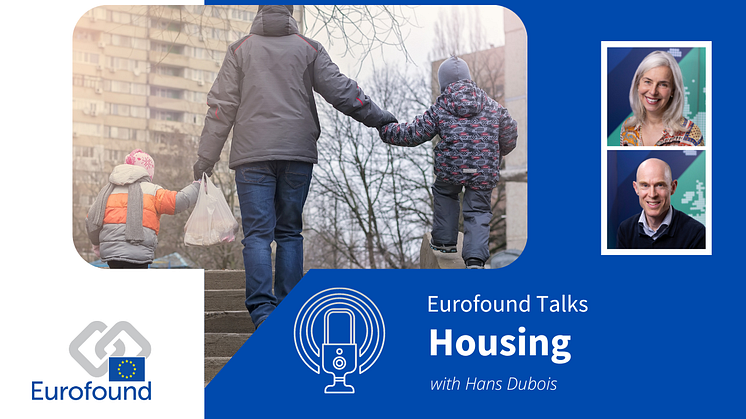
People fleeing Russia’s invasion of Ukraine can seek jobs in Europe but not knowing the host country’s language and temporary job placements are just some of practical barriers identified in a new research paper from Eurofound and the EU Agency for Fundamental Rights (FRA).

Between 2012 and 2020, overall homeownership decreased across the EU, with decreases of more than 3 percentage points in Denmark, Cyprus, Spain, Lithuania, Finland and Bulgaria. This decrease was driven by declining ownership among young people and low-income groups.

National Child Guarantee Coordinators met at Eurofound in Dublin yesterday, the first in-person meeting to be held in a Member State. Together, National Child Guarantee Coordinators reviewed progress made in reducing child poverty and improving access to services across Europe, as well as sharing practical experiences of sectoral reform.
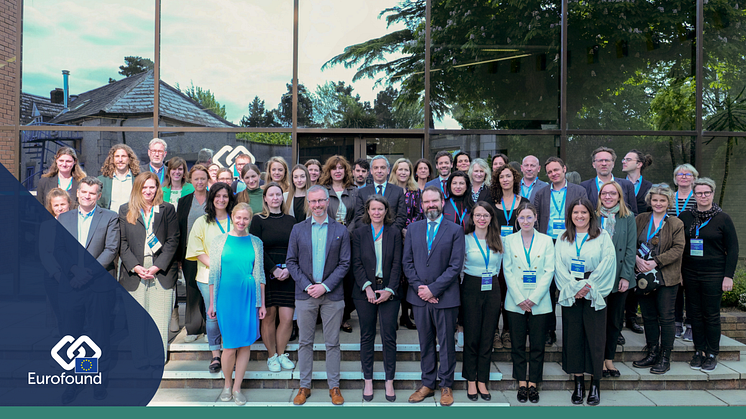
The growth of platform work has highlighted its potential for those that require more flexible work arrangements but has also raised concerns about working conditions and exposing the vulnerability of platform workers with respect to access to safe working environments and social protection.

Europe Day is a celebration of unity, solidarity and harmony. While we may not have had much to celebrate this past year, one thing we can be proud of is how Europe has come together in the face of large-scale challenges and threats, showing that solidarity is the key to resilience and resolve.

Eurofound's Living and working in Europe Yearbook 2022 looks at the major trends in employment, social dialogue, working conditions, living conditions and quality of life in an important year for Europe, which saw the beginning of Russia's brutal war of aggression against Ukraine, and the fallout for Europe and its citizens, including a cost-of-living crisis felt throughout the continent.

Eurofound, in partnership with the European Training Foundation (ETF), has launched a new online survey which aims to document living and working conditions in Europe and the evolving concerns of citizens amidst the cost-of-living crisis, the war in Ukraine, and the broader post-COVID-19 context.

While an initiative such as the European Year of Skills is welcome, and improving skills can certainly go some way to help to address labour shortages, it is not a silver bullet. To address these challenges effectively, what is needed is a clear grasp of the drivers behind shortages in specific sectors and occupations and the policy context.

Eurofound’s new report looks at measures implemented at national level to tackle labour shortages in the health, care, and information and communication technology sectors, as well as those arising from the twin green and digital transition, to assesses what works and the contextual factors supporting or hindering effective policy implementation and outcomes.

Eurofound has published a special episode of the Eurofound Talks podcast to look at the work-life challenges of women and men, and in particular how gender segregation on the labour market, and gender inequalities in the division of paid and unpaid work, impede progress towards gender equality in Europe.
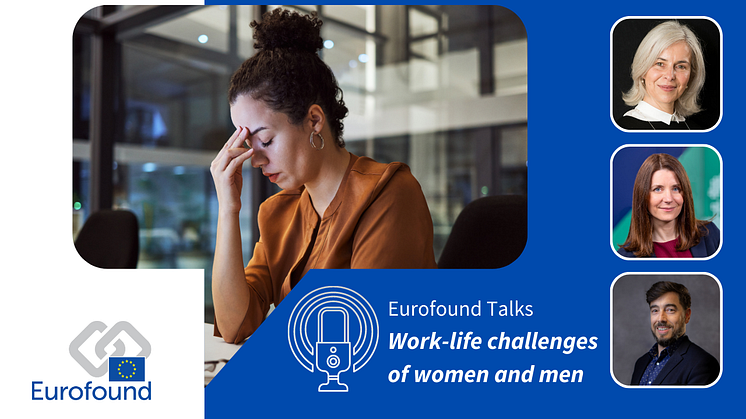
Women in the EU are 3.6 times more likely to suffer from unwanted sexual attention than men, with the likelihood of a young woman (18–34 years) reporting unwanted sexual attention three times higher than men of the same age, and 10 times higher than the oldest group of men (50+ years). This problem is even more acute for frontline workers, according to the most recent data.

The new episode of Eurofound Talks looks at the issue of job quality in the modern workplace. Mary McCaughey speaks with Eurofound Head of Unit for Working Life Barbara Gerstenberger about what the EWCTS reveals about job quality, the implications of poor-quality jobs on well-being and broader society, and what policymakers can do to improve the working lives of people in Europe.
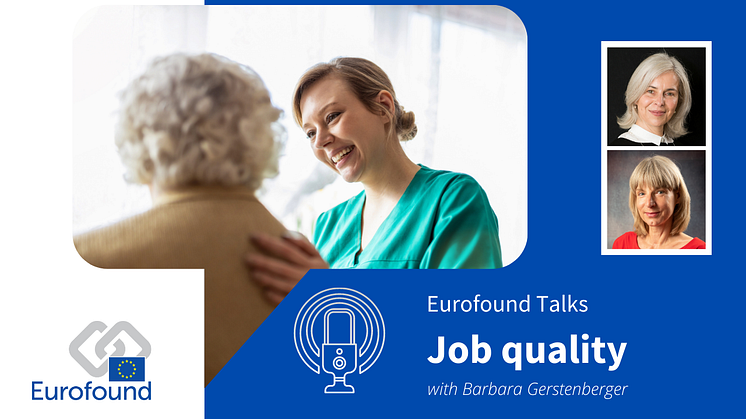
Ireland’s economic and social transformation since it joined the European Economic Community 50 years ago is a positive reflection on the Irish people, as well as the EU, and European cooperation.
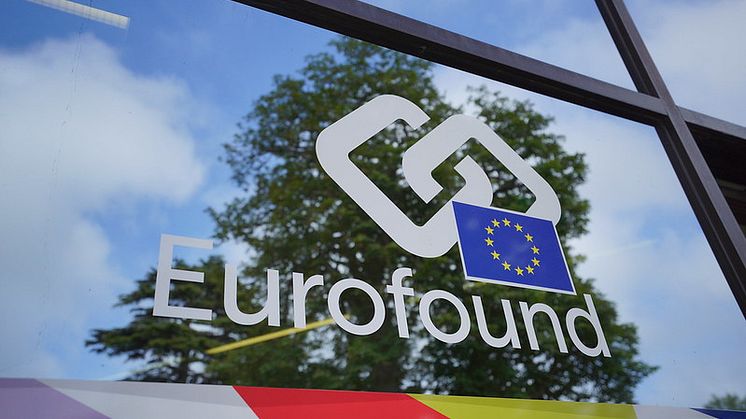
With inflation expected to persist, a further depreciation of minimum wages in real terms can be expected in most Member States, as only a few foresee additional increases in 2023.
